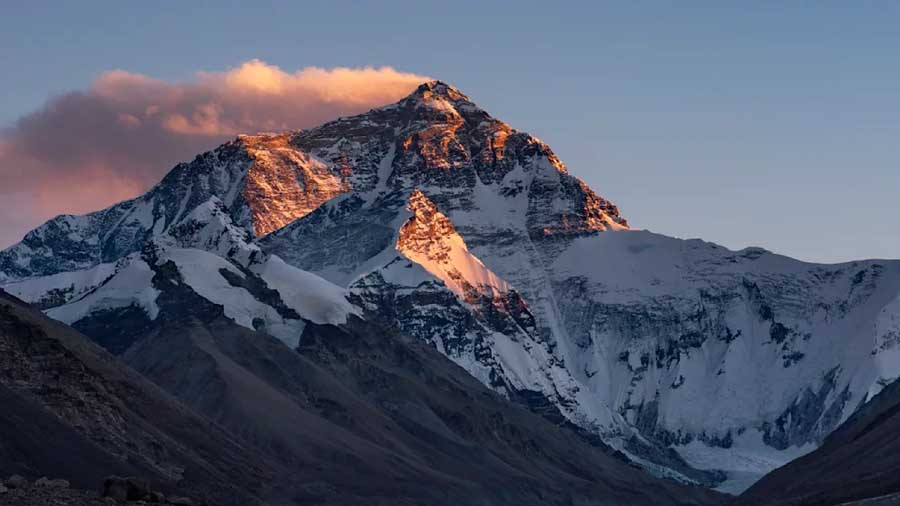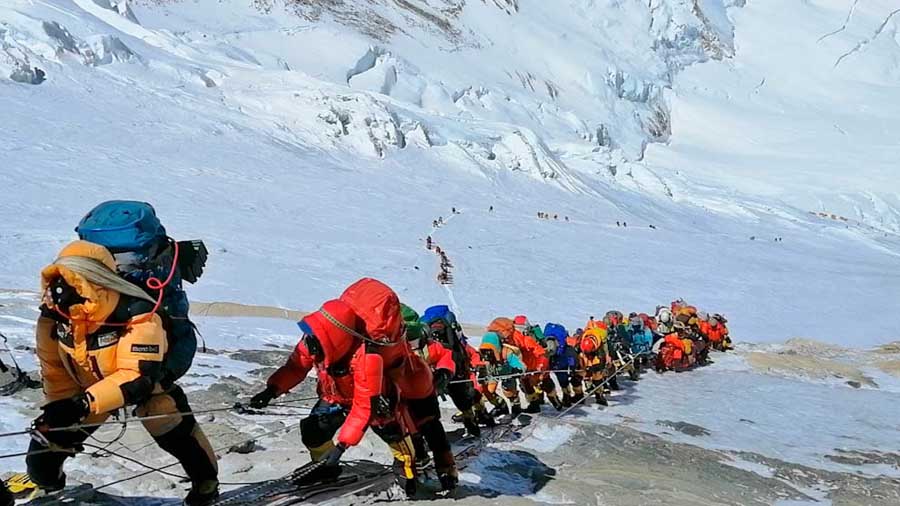 News Staff
News Staff![]() -
February 9, 2024 -
Recreation
Mount Everest
Waste Problem
-
2.1K views -
0 Comments -
0 Likes -
0 Reviews
-
February 9, 2024 -
Recreation
Mount Everest
Waste Problem
-
2.1K views -
0 Comments -
0 Likes -
0 Reviews

DLNews Recreation:
Mount Everest, the pinnacle of mountaineering achievement, has a growing problem that's getting harder to ignore – and it's not just the altitude. Amidst its icy vistas and breathtaking heights lies an issue that's both down-to-earth and decidedly less glamorous: a ton of trash and, brace yourselves, an avalanche of human waste. In a bold move to tackle this unsightly mess, authorities have declared that climbers will now need to bag their own poop or face fines. That's right, the world's highest peak is laying down some ground rules.
Bag It or Cough Up
Starting from this year's climbing season, those looking to conquer the 29,029-foot giant will need to carry excrement bags as part of their essential gear. Mingma Chhiri Sherpa, a leading figure in the local municipality, has confirmed that this isn't just a suggestion – it's a mandate. The goal? To prevent the majestic Mount Everest from becoming what could be described as the most elevated dump on the planet.

Mount Everest is the highest mountain in the world, at 29,029 feet. It has now become a rubbish dump.
What is the cost of not adhering to this new poop protocol? While the exact fines have yet to be disclosed, consider this: climbers must deposit $4,000 to ensure they bring down at least 8 kilograms of waste. Fail to do so, and not only do they lose their deposit, but they also face the potential of additional penalties. When you're already shelling out an average of $50,000 for the climb – with some paying much more – these fines are not just a drop in the bucket.

Mass tourism on the highest mountain in the world: Thousands of mountaineers leave behind an endless amount of garbage - and also their excrement.
A Hefty Problem at a High Altitude
The base camp may have its conveniences, but beyond that, climbers have been less than conscientious. From oxygen bottles and broken tents to, yes, human feces, Everest is bearing the burden of its popularity. Khimlal Gautam, an authority employee, and Everest climber highlights the gravity of the situation: it's not just about the unsightliness but the environmental impact and health risks.
Sherpas, the unsung heroes of Everest, have been doing their part, hauling down around eleven tons of waste in 2019 alone, some of which had been lying there for decades. Despite their efforts and the introduction of garbage deposits, the mountain's waste problem persisted. The hope is that the new excrement bag rule will encourage climbers to take responsibility for their waste, making the cleanup efforts more manageable and effective.
Climbing with Consequences
The introduction of poop bags is a step towards preserving the integrity of this magnificent mountain. But the effectiveness of this measure will ultimately depend on the climbers' compliance and the enforcement of fines for those who flout the rules. It's a matter of respect – for the environment, local communities, and the mountain itself.
As climbers prepare for their ascent, packing their gear and bracing for the challenges ahead, they'll now have to include a few extra bags – for a purpose they might not have anticipated. It's a small price to pay for the privilege of standing on top of the world and a necessary step to ensure that Everest remains a symbol of natural wonder, not a cautionary tale of environmental neglect.
So, as we watch this season's expeditions unfold, one thing is clear: Everest is more than just a test of physical endurance and mental fortitude. It's now a test of environmental responsibility. Will climbers rise to the challenge, or will Everest's poop problem continue to pile up? The summit awaits, and the world is watching.
Desert Local News is an invitation-only, members-based publication built on fact-checked, non-biased journalism.
All articles are publicly visible and free to read, but participation is reserved for members—comments and discussion require an invitation to join.
We cover local, state, and world news with clarity and context, free from political agendas, outrage, or misinformation.